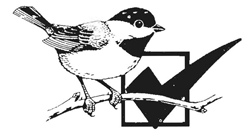
Last year, more than 5,800 Iowa taxpayers helped boost wildlife conservation with donations to the Fish and Wildlife Fund on their state tax form.
While that may sound like a lot, over the last 20 years, the number of donors has declined by 50 percent and represents only about 0.4 percent of the total taxpayers in Iowa.
This year, the decline in donors signaled a slight decline in donations as well, which totaled a little under $147,000, a decrease of roughly $8,000 from the previous year.
“We are extremely thankful for those who donate to wildlife conservation with their tax refunds! The funds are vital to our work on habitat development and restoration programs for some of Iowa’s most vulnerable animal species. We would love to see the number of people donating increase but it is hard to get the word out about this obscure line on the state tax form,” said Stephanie Shepherd, wildlife biologist with the Iowa Department of Natural Resources (DNR) Wildlife Diversity program.
The Fish and Wildlife Fund, commonly known as the “Chickadee Check-off,” is a mechanism the Iowa Legislature created in the 1980s for Iowans to donate to wildlife conservation on the Iowa state income tax form. Before this time, so called “non-game” wildlife had no dedicated funding.
Non-game wildlife are the 1,000-plus species such as songbirds, bald eagles, salamanders, turtles, monarchs, bees and more that make up the majority of wildlife in Iowa. The Chickadee Check-off is one of the only funding sources for the Iowa DNR’s Wildlife Diversity program, which is responsible for these species.
Funding helps to improve wildlife habitat, restore native wildlife, provide opportunities for citizens to learn about Iowa’s natural resources and much more. Recent projects have that have been supported by the check-off investigating the nesting success of bald eagles and determining the status of the endangered Poweshiek skipperling butterfly.
“One thing to be aware of if you’re interested in donating, is that the tax check-off line is pretty inconspicuous and can be easily missed. Be sure to remind your tax preparer that they have a client that wants to donate,” said Shepherd.
Once located, donating is easy: simply write the amount to donate next to Fish/Wildlife, which is line 21 on Form 1040, and the sum is either automatically deducted from the refund or added to the amount owed.
“If every Iowa taxpayer donated just $1, it would mean $1.6 million for wildlife and nature conservation,” Shepherd said.
New this year, if hopeful donors miss donating on the tax form, they can still make a donation to the Wildlife Diversity program on the web at https://programs.iowadnr.gov/donations.
